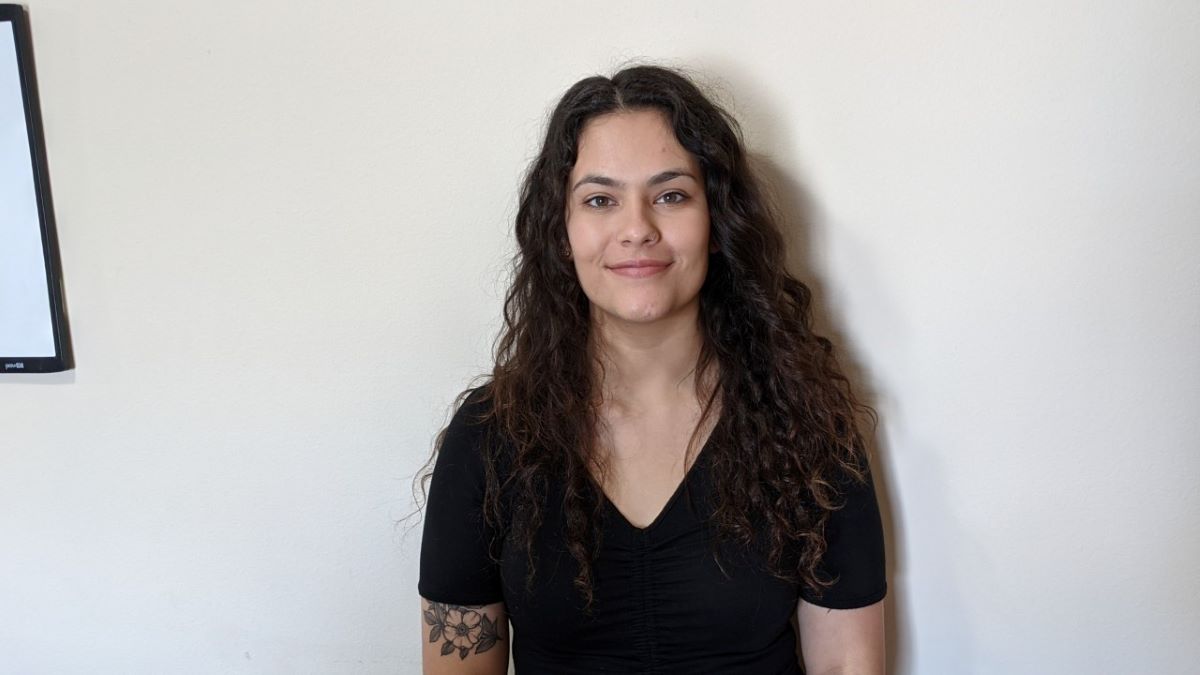Every career path must start somewhere.
For senior Sophia Antonopoulos of the biology department at Missouri State University, the path to becoming a scientist started as a childhood dream.
Antonopoulos’ time at Missouri State has turned the dream into a reality.
She shares how her research, funded by the National Institutes of Health, and faculty guidance continue to shape her academic journey toward scientific discovery.
From new Bear recruit to undergraduate researcher
The biology program’s combined focus on microbiology and biotechnology attracted Antonopoulos to the university.
But one aspect really sold her on enrolling: the involvement of undergraduate students in research.
“I’ve always known that I wanted to go into a research career, so getting involved in a lab early was important to me,” she said. “The program’s emphasis on encouraging undergraduate research made it the perfect fit.”
When meeting Dr. Alicia Mathis, department head of biology, Antonopoulos shared her interest in biomedical research.
Mathis shared the name of Dr. Paul Durham, distinguished professor of biology and director of cell biology and the Center for Biomedical and Life Sciences (CBLS), in return.
“I reached out to Dr. Durham a couple of weeks later. He allowed me to tour his CBLS lab during the summer before my freshman year,” Antonopoulos said. “He offered me a position doing research with him, and I’ve been working there ever since.”
Learn more about the undergraduate research experience
Making strides in pain studies
In Durham’s lab, Antonopoulos studies how grape seed extract functions to block pain signaling in trigeminal nerve cells.
These cells become activated during migraine attacks and temporomandibular joint disorder (TMD). The orofacial pain conditions affect women more than men.
“Grape seed extract is a nutraceutical,” she said. “Their natural compounds can offer the medical benefits of pharmaceuticals, but without the negative side effects.”
With her NIH-funded work, Antonopoulos strives to learn the mechanics involved in grape seed extract fueling changes among molecules and cells in the body.
This can offer key insight into strategies for effective treatment and patient safety, Durham explains.
“Sophia’s findings show that grape seed extract can function like opioid drugs in blocking pain signals but without the same risk of addiction,” Durham said. “In validating use of grape seed extract as a nutraceutical product, her project reveals its potential for use as an alternative or complementary pain treatment option.”
Connect with further pain research in Durham’s lab
The power of mentorship
Antonopoulos describes her experience in the biology program as full of opportunities.
“I feel incredibly lucky to get to learn a variety of lab techniques in my role at CBLS and an array of knowledge from professors in my classes,” she said.
While all her professors have provided guidance, she is especially grateful for the mentorship of Durham as her advisor.
“Dr. Durham has taught me more than I ever thought I would learn as an undergraduate. This includes not only lab techniques but also how to persevere when experiments don’t work out right,” she said. “I can’t thank him enough for getting me to the point I’m at today in my research.”
Antonopoulos is eager to move forward with her research. The process never ceases to inspire wonder despite its challenges and frustrations, she shares.
“Having somewhere outside of the classroom to apply my knowledge is the best part of the program,” she said. “It’s so satisfying to be able to design an experiment, perform the work and then get to see the finished data.”
Continuing on her career path
Antonopoulos will graduate from MSU’s undergraduate biology program in December 2021.
She plans to continue her education in the university’s accelerated master’s biology program at that time. But her journey at MSU won’t end there.
“I hope to work full time at Center for Biomedical and Life Sciences for at least a few years,” Antonopoulos said.
Durham is proud of all that Antonopoulos has achieved in the time they have worked together.
He knows she will go far as a scientist.
“Sophia is a mature, talented researcher and a true team player. She is willing to do the little things to make our lab run smoothly,” Durham said. “With her advanced work as an undergraduate student, Sophia is a great role model and teacher for other students.”

